About Us
The Department of Culture and Communication Studies is a four-year undergraduate program that provides students with a solid academic foundation while also offering them career opportunities in Turkish-German or international companies and institutions.
Established in 2016 and having graduated its first cohort in the 2020–2021 academic year, the Department of Culture and Communication Studies is a young and dynamic academic unit. As one of the most internationally oriented departments in its field, it offers students the opportunity to gain fundamental professional knowledge in both cultural studies and communication studies. Within the program, these two disciplines are interlinked through shared topics and semester-based core themes.
The Department adopts an interdisciplinary approach that examines communication sciences within a cultural context. In today’s world of complex systems, such an interdisciplinary perspective is essential in shaping the future of nearly every field. For this reason, the department’s curriculum and academic approach are multidimensional and multifaceted. Students deepen their knowledge through project-based learning and practical courses in line with the educational concept of the Turkish-German University. One of the unique aspects of the program is the integration of internships with related projects. Approximately one-third of the courses are offered in German.
With its intercultural orientation, competitive curriculum, and strong academic staff, the department benefits from a robust international network comprising members of the academic community and business sector. The program is distinguished by a synthesis of Turkish and German academic traditions, which sets it apart in terms of teaching, research, and social engagement. This naturally results in strong employability for students and contributes to innovation for our institutional partners.
The department’s core academic concept is to equip students with the ability to think and communicate about cultural contexts through selected scientific problem areas and various theoretical perspectives. The program focuses on the mutual transformation and interaction processes of cultural assets, as well as the highly dynamic nature of the contemporary media landscape—particularly in the field of new media. To scientifically address this dual dynamic, the program provides a solid foundation in the history of culture and media and in the long-term transmission of cultural knowledge. This also explains why these two disciplines are presented together in the same program.
Graduates of the department are equipped to pursue a variety of communication-related professions both in Turkey and Germany. In line with the unique structure of the Turkish-German University, students can complete part of their studies through a funded summer school at one of the partner universities in Germany or, if they wish, within the framework of the Erasmus exchange program. When available, internship opportunities in Germany are also among the options. Additionally, the program serves as a foundation for graduate studies in both countries. With a focus on fields such as International Communication and Media Studies, Intercultural Management, and Teaching German as a Foreign Language, the department offers its own graduates—as well as top-tier graduates from leading Turkish universities—strong and competitive academic career prospects.
Beyond preparing students for graduate education in Turkey and Germany, the department also aims to equip them with professional qualifications to take on leadership roles in international companies and governmental institutions operating at the Turkish-German and global level. This includes Turkish companies in Germany, German companies in Turkey, as well as ministries, associations, and cultural institutes in both countries. Students may find employment in traditional media sectors such as newspapers, magazines, television, and radio, as well as in new media industries and marketing communication fields, including advertising agencies, public relations firms, and digital media agencies. Additional employment opportunities exist in museums, art galleries, production companies, theaters, performing arts institutions, and the tourism industry.
The Department of Culture and Communication Studies is jointly coordinated by Assoc. Prof. Dr. Süreyya İlkılıç (Turkish-German University, Faculty of Cultural and Social Sciences) on the Turkish side and Prof. Dr. Alexander Werth (University of Passau) on the German side.

